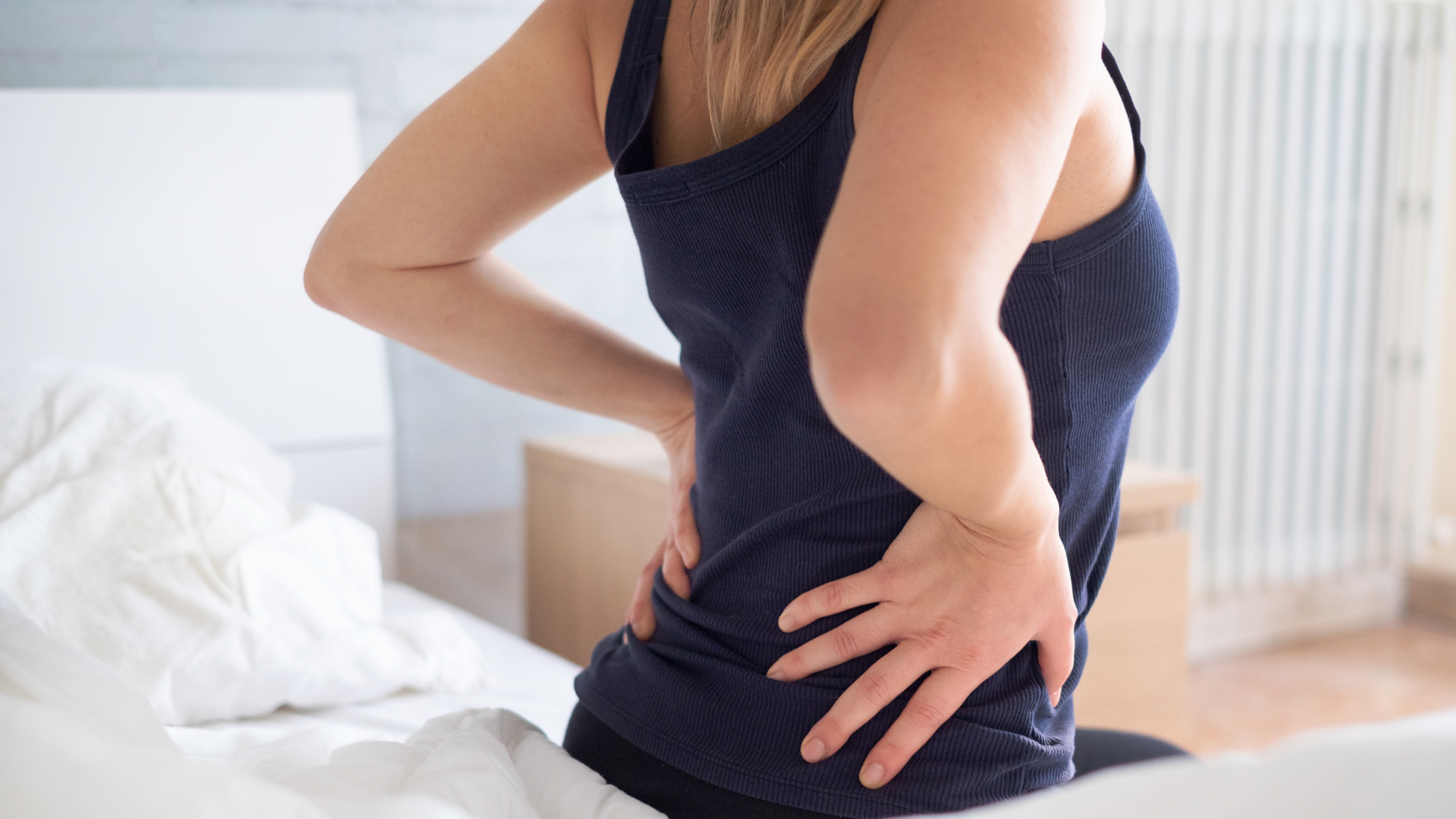
Back pain is a common issue that many people struggle with on a daily basis. The back is an intricate part of the body that consists of many muscles, fibers, and bones. When these get out of whack, that can cause back pain.
The lower back back is extremely load bearing, meaning it holds a majority of our weight all day. Having weaker back muscles and poor posture can increase the risk for developing back pain, especially with poor posture.
Back pain can interrupt a majority of the day, making activities like walking, playing and sleeping much more challenging. Exercise and stretching are the best methods for attending to back pain, yet back pain can make doing all of these activities nearly impossible.
Sleep is another aspect of life that back pain negatively impacts. Pain disrupts sleep, and poor sleep can make pain worse. Also, sleeping in a position that doesn't support the back, or on a mattress with poor support can worsen lower back pain.
If you understand the relationship between sleep and back pain, then you may be able to better address both sleep and back pain issues at once. Continue reading to learn more about this complex relationship.
How Sleep and Lower Back pain are Related
There are two primary characteristics of back pain: acute and chronic. Acute lower back pain is short-term, resulting from an injury or identifiable event. It normally lasts anywhere from a few days to a few weeks. When the pain finally subsides, there is no further disability or effect on mobility.
Chronic back pain takes place over a long time, and there may or may not be an identifiable event or injury. The pain often waxes and wanes, but never fully recovers.
Lower back pain that is acute may eventually develop into chronic back pain. An estimated 20% of cases of acute lower back pain actually turn into persisten, chronic back pain.
The relationship between sleep and lower back pain
There is a long-standing, two-way relationship between sleep and pain. Discomfort from back pain can disrupt sleep. Pain causes anxiety from anticipation, adding a mental component to an already existing physical component. Both physical discomfort and worry are counter productive to sleep.
Poor sleep, on the other hand, is antagonistic to pain relief. A lack of sleep leads to increased sensitivity regarding pain, and increased inflammation which worsens pain. Sleep deprivation can also impair mood, which plays a role in the ability to cope with pain symptoms.
The best sleeping positions for lower back pain
The best position to sleep in when you have lower back pain is on your side with a slight bend in your knees. When you keep the knees bent, that reduces pressure on the lumbar spine. The benefits of this position may be even greater if you put a pillow between your knees to keep your hips even and make this position more comfortable.
Many back sleepers can put a pillow under their knees to support the natural curve of the back. For stomach sleepers, the best support is a thin pillow under their head and a more supportive pillow under their hips and abdomen. This can prevent extensive extension in the lower back, or forming a U-shape, which can increase the pressure on your lower back.
An adjustable bed, though expensive, can be a great way to sleep better with back pain. It can decrease tension in the lower back. If an adjustable mattress doesn't fit within your budget, then making sure you have a comfortable mattress in general is going to be great for your back.
A poor mattress can play a role in exacerbating lower back problems, but a good mattress can really help improve or prevent lower back pain. Proper spinal alignment requires a firm mattress that doesn't sag too much. A medium-firm mattress is the best type to prevent lower back pain. The most appropriate firmness absolutely depends on the individual, but a medium-firm is a good starting place.
How to sleep better with back pain
Getting good sleep is essential for recovering from back pain. However, when dealing with something as uncomfortable and disruptive as back pain, there is no guaranteed way to sleep better. However, there are practical sleep tips that can help.
-
Finding a supportive sleeping position
-
Be careful with alcohol and coffee
-
Relax before bed
-
Reduce potential sleep disruptions
Focusing on sleep hygiene can also improve back pain. By focusing on sleep hygiene, you can train your brain and body to be ready for bed, which may reduce some of the signals going to your back and causing back pain.
If your back pain is causing you severe sleep disruptions, or you are experiencing shooting, debilitating pain, then it's time to talk to a physician. If your primary issues are sleep, then please click the orange button below to take a free onliensleep test and talk with one of our sleep health professionals. However, if your primary issue is your back pain, then please visit your primary care physician to rule out anything serious.
https://www.sleepfoundation.org/physical-health/how-to-sleep-with-lower-back-pain

